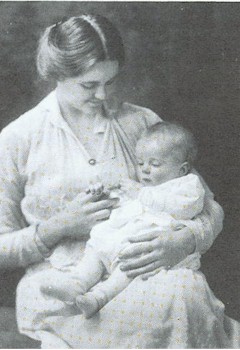BREAST MILK ENHANCES INTELLIGENCE
Evidence is mounting that breast milk enhances the mental development of children. We have often heard how nursing and a close maternal tie can help to establish children's basic trust in their world. Several studies have shown an advantage in later development and intelligence quotient (IQ) for breastfed infants. However, in a recent article1 on the later development of preterm infants, where there had been no opportunity for nursing and maternal bonding, use of breast milk itself was correlated with significantly higher IQ at 7 1/2 to 8 years of age.

Three hundred children were followed up. All had been admitted at birth to special-care baby units and were fed milk by tube. The mothers were asked to choose whether or not to try to provide breast milk. One group chose not to provide it and the second group chose to try. In considering the two groups, the researchers were concerned about including factors that might affect IQ, such as parenting skills. (In NOHA we might also want to consider nutritional status and toxic exposures.) They controlled as well as they could with available data, using variables that had been found relevant to mental development in their earlier study of the children at 18 months. These variables included social class, mother's level of education, and details about the child's birth. Of all these factors, early feeding with mother's milk was found to have the most significant relation to IQ at 7 1/2 to 8 years. If fact, interpreting the statistics, the probability is less than one in ten thousand that the IQ advantage of the infants fed mother's milk would occur by chance. Also, the advantage held within each social class and at each maternal education level.
Of all these factors, early feeding with mother's milk was found to have the most significant relation to IQ at 7 1/2 to 8 years.
Among the mothers who chose to give breast milk some were able to provide a higher proportion of all their child received. Interestingly, "there was a significant dose-response relation between the proportion of mothers' milk consumed and later IQ, which persisted after adjustment for potential confounding. Also, some mothers wanted to provide breast milk, but failed and the researchers "found that the IQ of children in this category was virtually identical to that in children whose mothers chose not to provide milk at all."
What might explain the observed enhancement of mental development from infants consuming breast milk?
Human milk contains various factors that might affect nervous system development. For example, long-chain lipids, which are not present in formulas, are important for the structural development of the nervous system (eg, docosahexaenoic acid [a long-chain, highly unsaturated omega-3 fatty acid], which is accumulated in large amounts in the developing brain and retina).
_____________
1Lucas, A., R. Morley, T.J. Cole, G. Lister, and C. Leeson-Payne, "Breast milk and subsequent intelligence quotient in children born preterm," The Lancet, 339: 261-4, February 1, 1992.
Article from NOHA NEWS, Vol. XVII, No. 3, Summer 1992, page 1.